In 2011 when I built pudendalnerve.com.au, the internet was starved of helpful communities and resources. It was the very reason my advocacy began. I didn’t want anyone to be as lost as I was on my search for important health information.
There were few online portals where people could connect, and the only health information available was through science journals – no individual could understand them!
Health orgs that did have a web presence seemed not to have a dialogue with the consumers they claimed to exist for.
Thank goodness that’s changing, but we still have a way to go as the usual questions remain; What is chronic pain? How can we manage chronic pain and its symptoms and effects? What are the best treatments, and why is there such a lack of understanding? etc
This is where Nerita Lewis comes in with her idea to democratise healthcare with Jaspen.
I was fortunate to be introduced to Nerita a couple of years ago. We immediately connected as health tech startup founders.
Nerita was impressed with My Health Story feeling it aligned with her vision for Jaspen in that it allowed people to take control of their data and keep their health in their hands.
Nerita has since been using My Health Story and she has also been providing her valuable insights for the development of the resource / App, which I am very grateful for.
Now, Jaspen has entered the stage of powerful health resources – it’s live! And I am super eager to introduce you to Nerita and Jaspen as I think you’ll find Jaspen a great support.
Where did the idea of Jaspen begin?
I started taking notes on my phone in 2020, listing where I saw the opportunities for innovation, and in 2021 conducted a research project internationally. I was so surprised that the biggest issue for people wasn’t pain; it was invalidation (not being believed or understood).
So I met with a Professor in Pain Management who said something I’ll never forget, it’s very rare for someone to have the quality of life you do given the pain conditions you have. This statement reinforced the importance and urgency to help others.
Reflecting on over eight years of living with pain, I can identify the gaps and, more importantly, the opportunities for innovation.
I had to leave the military service due to injury and chronic pain, and I was lost for a long time. What made this time particularly challenging was trialling different treatments and feeling alone in this process. I started to realise that taking 22 medications a day wasn’t a long-term plan so I explored what other options existed. I then became stronger and empowered. I started to explore my passions (research, learning, innovation, giving back) and landed in the startup world, building Jaspen.
What’s different about Jaspen?
Jaspen believes in democratising healthcare. Eliminating the google time, luck and money needed to find a way to move forward. The platform will be free with a premium option in the future. Everyone deserves the opportunity to access guidance and support.
Jaspen’s focus is completely on its own community.
The biggest healthcare gap happens before or after pain programs, treatments, etc. – and it’s even worse to learn that people don’t attend these at all due to the high cost and difficulty accessing them. Further, often these treatments are short-term; what’s needed is long-term support.
Chronic pain is complex. Often it can take months or even years to figure out what works. Jaspen will be there to support a person no matter which stage of their individual journey, in between appointments with a pain specialist, psychologist or physiotherapist, for example.
Think of Jaspen as a grassroots-style movement where the products and technology are developed by its community.
Jaspen is focused on building something that people really love and that they can reshape so it genuinely makes a positive difference to their lives.
One of Jaspen’s values is:
LIVING EXPERTS IN PAIN™️
The people living with pain are the living experts. Yes, they are!
These living experts and evidence-based medical data shape everything Jaspen does.
And we don’t use the word ‘patients’.
If you look up the word ‘patients’, you’ll find invalid, victim, sufferer, and inmate. So certainly many people have felt or been treated this way. People living with pain are strong humans, so the narrative has to flip to this:
empowered, strong, courageous, brave and capable.
And we need to disrupt the power imbalance in the health system by empowering the living experts.
This means considering what is required to build for the future. That includes exploring blockchain, metaverse and NFTs. What does this mean? It means moving on from the archaic fax and using the power of technology and art to change people’s lives.
Jaspen is now looking at how healthcare and support will be delivered in the future, and at the core of this is personal stories and helping to reduce feelings of shame, stigma and social isolation.
Jaspen believes validating a person is critical before starting any healthcare treatment.
Once a person feels heard, seen, believed and supported by their peers, it is more likely that they will feel comfortable trying new things to move forward in their own unique way.
So Jaspen will support members to share their stories (with permission), offer access to evidence-based information and be the connector that positively shapes policies and builds innovation – it’s a peer-led process.
Unfortunately, the statistics for people living with chronic pain are actually going backwards. Despite the surge in digital health, only 1 in every 100 people receives adequate care (2021). Jaspen wants to take this data to influence the government, health system and society.
How do you expect people to engage on the platform, and how can Jaspen support them?
Jaspen encourages engagement by providing generous, helpful, and easy-to-understand information, a buddy system to match users, and visually beautiful and user-friendly content.
Our brand is fun and warm, with a touch of cheekiness, which makes the platform more appealing. And we incorporated some humour which helps users feel more comfortable and connected.
What has your ‘patient’ experience taught you?
So much! But these are the main points:
- To use my voice
- I have choices, and I am the ‘living expert’,
- I understand my body best
- Don’t rely on appointments, as they are unlikely to have the answers and a ‘fix’.
- Build my own support team (family, friends, and people online).
- Be very selective with practitioners like pain specialists or psychologists and to change them if they aren’t meeting my needs.
- Stay engaged in life no matter how small; it could be a 10-minute walk each day or a hobby.
- The health system is very challenging, so do some post-planning after appointments, like going for a walk, having coffee with a friend or seeing a theatre production.
- Look out for timelines stories – these are dangerous, ‘people cured in 8 weeks’ for example.
- Don’t compare yourself.
- There is no cure or best treatment for chronic pain.
- Find what works best for you, which usually involves several options. For me, at this point in time it’s good sleep, low inflammation diet, meditation, walking, the gym, art practice and yoga. This can change over time. I’ve tried a number of different things that helped on my journey: therapy, acupuncture and saunas.
One of my favourite realisations is how good people are at helping people and how important that is for us. Do you think that’s a key component of chronic health management now?
That’s the best way to learn, not from a book or a doctor, but from each other. It’s common to feel like you’re the only person experiencing something. There’s something wonderful about sharing challenges and feelings less alone. Not judging our reactions so harshly, realising we are human.
I think there’s nothing more frustrating than someone who’s never experienced chronic pain lecturing or providing unsolicited advice, like “you shouldn’t be so stressed” or “try yoga”. Empathy, understanding, listening and seeking to learn is the best way.
No person should or shouldn’t do anything. People like to have autonomy over their lives and when they live with chronic pain, they can often lose this. It’s critical that we feel in control (with support) to make choices and move forward to improve the quality of our lives.
Humans are social by nature. Community is incredibly powerful. I think this is fundamental to chronic health management.
What do you think the order of management is now?
It would be great if it were a diagnosis, but usually, it’s confusion first. So this is where Jaspen comes in. Cut to the chase, connect to our community, and get validation, empathy, and emotional support. Then it’s about education and treatment and, if necessary, returning to Jaspen for ongoing support.
And, of course, keeping your information together with My Health Story!
Social media, at any point, is a great way to share information and reach people around the world.
We’ve been through the worst of our chronic pain experience (well, I believe we have). What would you suggest someone right in the middle of that deep, dark forest do today, tomorrow and in a month?
-
- Today: Start with the basics; food, water, and sleep.
- Tomorrow: Begin to add activities, but remember to treat yourself like you are in rehabilitation. If you’d just broken your leg, would you be angry because you can’t go for a run? Well, maybe, but you would also realise that it will take time to heal, build strength, etc. Start small and build from there. Maybe add a 10-minute walk, enjoy an episode of your favourite tv show or take a bath.
- In a month: Continue to build on these daily activities. Set realistic goals, which are a little difficult but not impossible. A goal may be to build to a 20-minute walk most days of the week, go out for dinner once a month or spend 1 hr cleaning your house every week.
And key through all this is not judging or comparing to others (it’s difficult but so important!). Also important is keeping track of goals and adjusting as necessary – My Health Story has a great way to do this now.
Have compassion and love yourself. When you are angry and annoyed, it’s a form of self-sabotage and can delay healing. It’s a natural response, and it is frustrating to be limited. Being kind to yourself and doing your best is the way forward.
Jaspen is here for you at any time that you need.
And…
If all the above information isn’t enough of an indication as to how much impact Nerita’s work will have in the pain world, get this!
Nerita is among 84 Australians to receive the internationally recognised and prestigious Churchill Fellowship. In mid-2023, she will travel for an 8-week period to the USA, UK, Finland and the Netherlands to research the topic ‘veterans living with chronic pain’. Nerita will be exploring the latest innovations in the field of chronic pain.
You can read more about her project here.
Follow Nerita and definitely subscribe to Jaspen.
Jaspen really is a soothing platform and community of kindred spirits that will help you through your days.



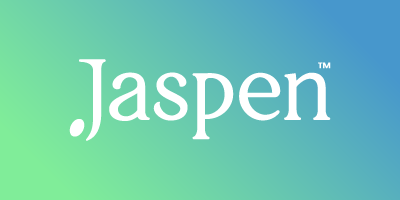
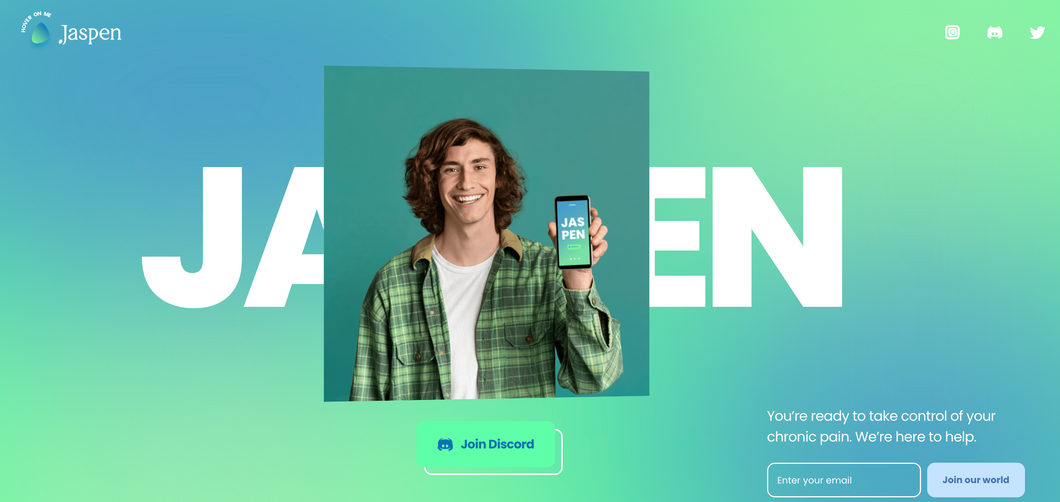

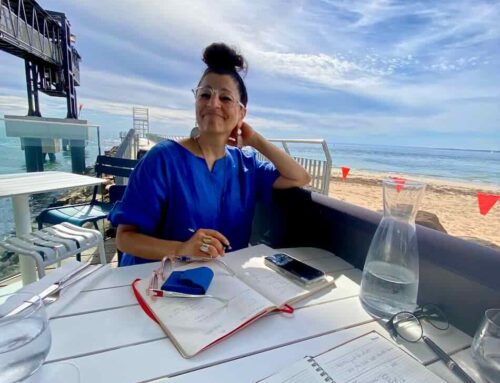
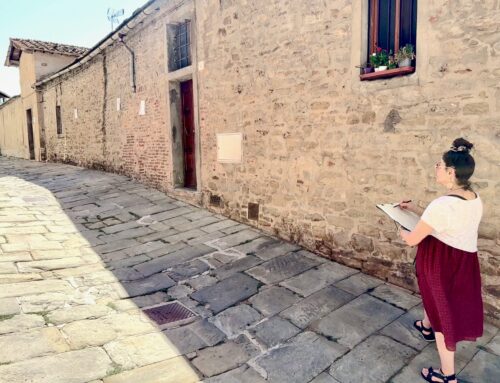
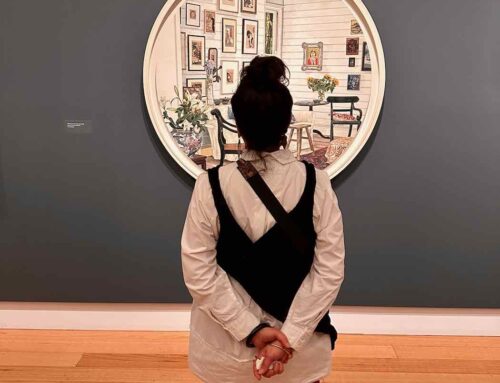
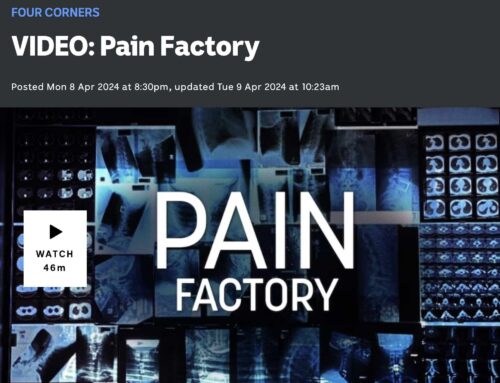
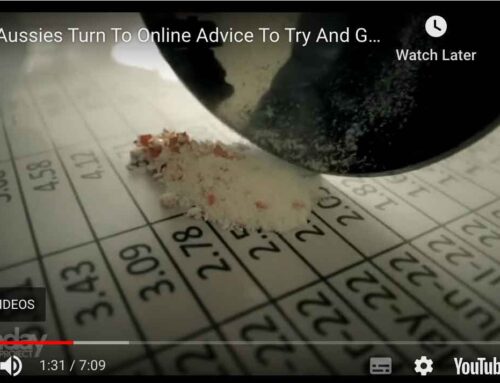

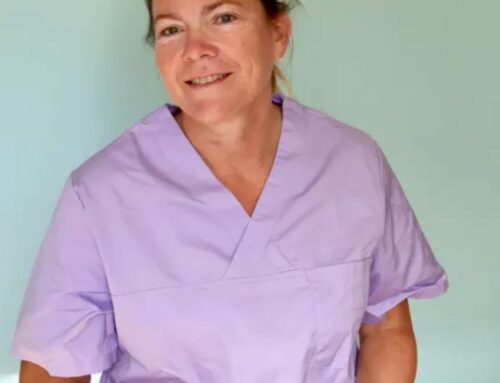
Leave A Comment